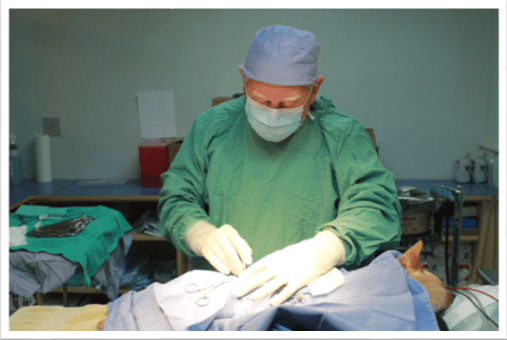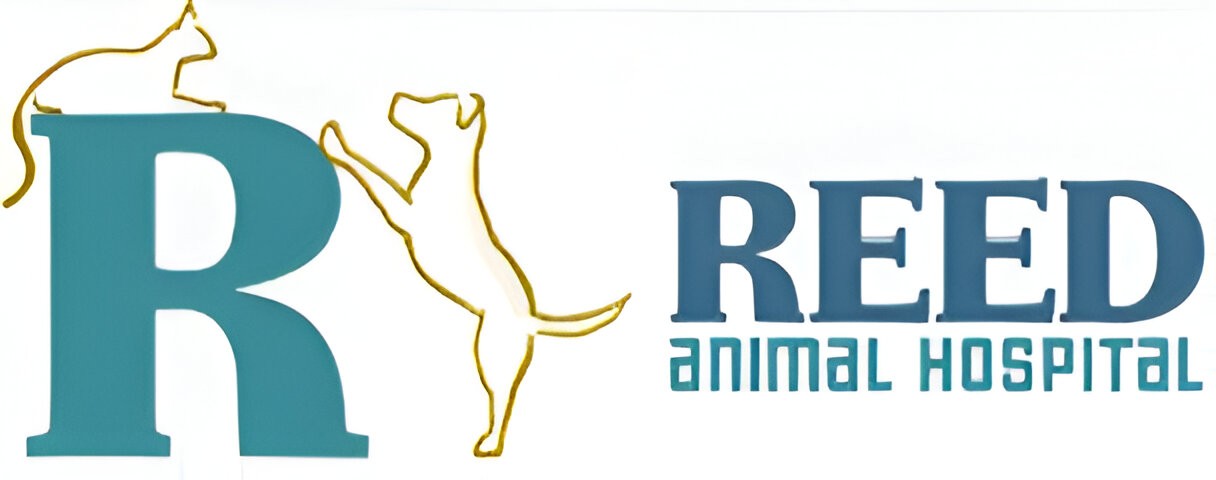Tumor or Mass Removal for Pets in Campbell & Saratoga
Tumor Types and Mass Removal
According to the National Cancer Institute Center for Cancer Research, over 6 million dogs are diagnosed with cancer each year in the United States. It is one of the most common causes of death in older pets. Cancer is an abnormal growth of cells that commonly grows into tumors. These abnormal cells can spread to other parts of the body, including skin, bones, or organs.
In most cases, early detection is crucial in giving your pet a chance at living a long, healthy life. Keep in mind, not every bump or lump is cancerous. Many bumps are benign. The veterinarians at Reed Animal Hospital can accurately diagnose the tumor to determine if it is cancerous. The type and severity of the tumor will determine the type of treatment plan, which may include surgery, chemotherapy, or radiation.

Types of tumors:
- Mast Cell Tumors: The most common type of skin tumor, which can be red, itchy, and grow quickly.
- Lipomas: Common benign fatty tumors can be soft and movable under the skin.
- Osteosarcoma: Bone cancer that typically affects larger breeds of dogs’ legs and sometimes spines.
- Histiocytoma: Usually benign, small, red, raised, and hairless. This type of tumor is more common in very young dogs.
- Hemangiosarcoma: Cancer of the blood cells and commonly found on the spleen, or can develop in the pet’s skin or heart.
- Melanoma: Typically black or brown-pigmented cancer of the skin. Melanoma can be anywhere from benign to aggressive, depending on the area and if it has metastasized to other places.
- Lymphoma: Cancer of the lymph nodes. Tell-tale signs include loss of appetite, lethargy, and coughing along with swollen lymph nodes. Areas of swelling can be behind the shoulders, knees, or under the jaw.
- Papilloma: Benign cauliflower-like warts that can be uncomfortable or problematic. A virus (papillomavirus) causes the warts to spread from one pet to another from direct contact, bedding, or other objects.
Surgical Pet Tumor Removal
Reed Animal Hospital has locations in Saratoga and Campbell. Both have qualified veterinarians to examine and identify possible cancer symptoms your pet may have. Reed Animal Hospital has top-notch surgical veterinarians to perform all procedures as well as state-of-the-art equipment and technology. If your pet does have a tumor, the first step is diagnosing what type of tumor it has. Steps may include taking a biopsy. (Removing a few cells from the area using a needle) The cells from the biopsy will be tested along with a blood sample to determine the overall health of the pet. If the tumor is more advanced, other procedures such as X-rays or draining certain areas such as the lymph nodes may be needed to decide if the cancer has spread.
Success of Surgery
The success of surgical procedures will depend on the type of tumor, what stage the cancer is in, and the age and current health of your pet. The good news is that many procedures are very successful and can give you and your pet many more years of happiness. Early detection is one of the most critical factors in fighting cancer. Yearly wellness checks are very important to help discover the early signs of cancer that can lead to life-threatening tumors. If you feel your pet has a lump, loss of appetite, or is lethargic, limping, or just not its normal self, call Reed Animal Hospital in Saratoga or Campbell to make an appointment.
Don’t wait—early action can save lives. Contact us today to schedule your pet’s cancer screening and give them the best chance at a healthy, happy future.
We Treat Your Pet as if They Were Our Own

